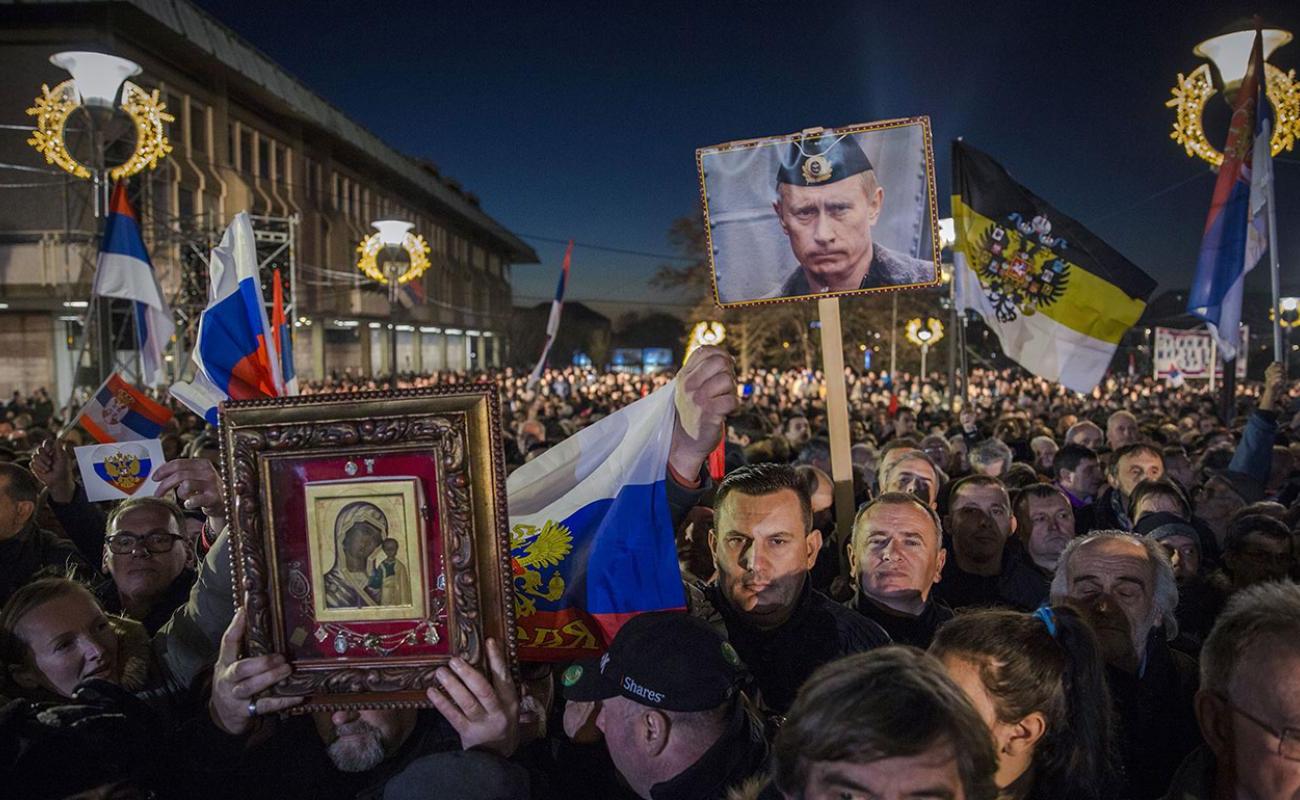Russia’s hand ‘at play’ in political tensions in Bosnia, says minister
James Cleverly agreed with Conservative MP James Gray that behind the political tensions in Bosnia ‘lies Russia’.

Russia’s hand is visibly “at play” in the crisis brewing in Bosnia, a minister has said.
As deep tensions triggered by Serbian separatists pushing towards secession continue in the Balkans, Foreign Office minister James Cleverly told the House of Commons the Government is “absolutely determined” to maintain peace in the region.
In reply to an urgent question from Conservative MP Anthony Mangnall, the minister insisted the Government does already support peacekeeping forces in the Balkans, adding: “I am not going to speculate on what a future stabilisation or military force composition might be like, but as I have said, the Foreign Secretary will be raising this issue in the strongest terms at the Nato foreign ministers’ meeting in Riga shortly.”
Mr Cleverly also seemed to blame Moscow for the political tensions, after Conservative MP James Gray (North Wiltshire) urged the Government to do something “very dramatic” as “behind all this lies Russia”.
Mr Gray said: “The trigger for the current instability in Bosnia-Herzegovina is that the High Representative brought in a law outlawing genocide deniers.
“The last place in the world where genocide can be denied is the Republika Srpska and all the High Representative did was to say that it is now outlawed.
“Will he agree with me that actually behind all this lies Russia and lies Serbia itself, and unless we do something very dramatic and very serious and very urgent about it, we are facing return to the kind of chaos that we saw in Bosnia-Herzegovina in the late 1980s and late 1990s?”
The minister replied: “(He) is right that we do see the hand of Russia at play here and we need to work with the High Representative and our international partners to ensure that there is not a fragmentation and he is right, that it is unacceptable to deny Holocaust in whichever arena it occurred.
“But for many of us, this is the event which was a significant part of our of our lives.
“And it’s one that we have to ensure it is not repeated.”
Shadow foreign minister Wayne David also described the situation as “extremely serious”, asking: “What representations has the UK Government made in China and Russia for them to adopt a more constructive attitude towards Bosnia and Herzegovina?”
Mr Cleverly reiterated the need to “work together with our international partners to do everything we can to deter that (fragmentation) from happening.”
The Bosnian War started in 1992 when Bosnian Serbs, with the help of the Yugoslav army, tried to create ethnically pure territories with an aim of joining neighbouring Serbia.
More than 100,000 people were killed and millions were left homeless during the worst bloodshed in Europe after the Second World War.
The 1992-1995 war pitted Bosniaks, who are mostly Muslims, Serbs and Croats against each other and ended with the US-sponsored peace agreement that created two regions, the Republika Srpska and the Bosniak-Croat Federation.
The two regions were given wide autonomy, but some joint institutions were kept including the army, the top judiciary and tax administration.
